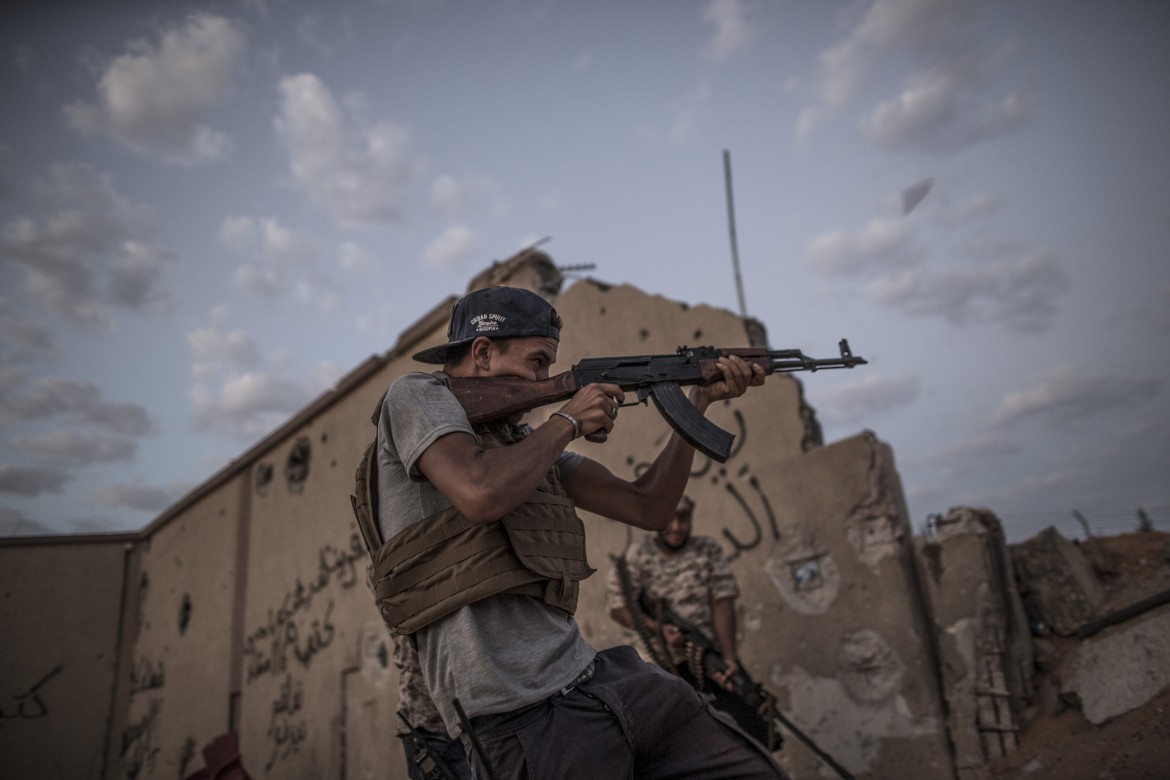Commentary
Libya is breaking apart, and so are we
Italy is not “in the middle” of all this, but rather at the bottom of the totem pole. Its Western allies led the Berlusconi government by the nose back in 2011, when they attacked Gaddafi and pressured Italy to join the NATO raids.

There are rumors floating around about a partition of Libya into Tripolitania and Cyrenaica. From one international meeting to the next, we are moving in fits and starts toward a sort of de facto “downgrade” of the UN recognition given to the government in Tripoli, in order to clear the way for—at best—some fragile confederal solution, where the real crux of the matter will be the division of oil resources.
There are simply no other solutions to avoid the escalation of the conflict. This was already obvious back in 2011, when, on March 19 of that fateful year, France, the UK and the US attacked Gaddafi in support of the Benghazi rebels. Back then, everyone already knew that the tribal divisions, as well as the regional and local ones, were going to play a decisive role, because for the past 40 years the Libyan state had existed in the person of Gaddafi himself and his circle of power, not as a solid administrative and military system. It was deliberately kept in a frail condition by the raìs because of his fear that some nation-level force might arise to oppose him.
Then, after France under Sarkozy—someone who owed Gaddafi a lot for his support—infiltrated his circle of power in the months preceding the rebellion, the Libyan state began to disintegrate, and it has proven impossible to resurrect ever since, prey to internal divisions, Islamic radicalism and international influences.
As with any “failed state” that is potentially very rich due to its gas and oil, there are strong forces, both internal and external, intent on getting a piece of the action: this is just as true for Libya as it is for Iraq or Yemen. In addition, Libya is a vast country and a crucial point on the route between the Mediterranean and Africa, all too tempting for the powers involved in the region.
Libya is many things—what it certainly isn’t, however, is a safe haven for migrants, as our governments have tried to pretend, deluding both us and themselves. On this issue as well, we have made a big mistake, losing sight of the real geopolitical game.
The country’s future will be decided on the battlefield, such as the clash in Sirte between General Khalifa Haftar’s forces, the government of Tripoli and the city-state of Misrata, where over 300 Italian soldiers are stationed, guarding a hospital. But those who will make a difference most of all will be the two main protagonists of the developments around the Mediterranean: Putin and Erdogan, who met Wednesday in Ankara to inaugurate the Turkish Stream, but also to talk about many more things—from Libya to Syria, all the way to the tensions between the US and Iran.
Erdogan, a NATO ally gone rogue, has sent troops to Tripoli and jihadist mercenaries to help Sarraj and the Muslim Brotherhood, while Putin is giving support to Haftar with his mercenaries, together with Egypt, the UAE, Saudi Arabia, France and the United States—the latter showing an ambiguous attitude, as always, but in practical terms favoring the general rather than Tripoli. Haftar’s side, apart from Putin, includes all the major clients of the American arms industry, such as the Saudis and the UAE, who are also longtime allies of the US and Israel against Iran.
Italy is not “in the middle” of all this, but rather at the bottom of the totem pole. Officially, it supports the government in Tripoli, but it is trying to reposition itself by intensifying relations with Haftar, with whom Di Maio met in December and who should make another trip to Rome soon.
Italy has no influence left because its Western allies led the Berlusconi government by the nose back in 2011, when they attacked Gaddafi and pressured Italy to join the NATO raids, which it did by the decision of former president Napolitano. It has no influence left because it’s stuck between a rock and a hard place, particularly because it has to protect ENI.
ENI is still the largest company in Libya, it manages the Green Stream gas pipeline and it supplies 70% of the country’s electricity — not to mention all the business that the deceased raìs had promised to Italy (orders worth €50 billion). Back then, Libya was ours on a silver platter, but for some time now it has been others squabbling over what’s left of the spoils.
Just a decade ago, in Gaddafi’s ceremonial tent, the raìs was awarding state honors and medals to Giulio Andreotti, Lamberto Dini, former Minister Giuseppe Pisanu, Vittorio Sgarbi, Prime Minister Berlusconi, Frattini, Prodi and D’Alema. He honored almost the entire ruling class of the Italian Republic, which would abandon him soon afterwards.
Di Maio, the current Italian Foreign Minister, was on Tuesday at the EU meeting on Libya in Brussels, and was in Cairo on Wednesday to meet with the representatives of France, Greece and Cyprus, where he needed to be cautious not to make any wrong moves. Accordingly, before meeting with the pro-Haftar and anti-Turkish front, he prudently scheduled a meeting with Ankara’s Foreign Minister, Mevlut Cavusoglu.
We no longer have any leverage in Libya. Haftar doesn’t like us all that much, and neither does Sarraj, who is now talking to Erdogan alone. That’s why we’re in such a pitiful position: the era of rich prizes and perks coming from our neighbor across the Mediterranean has been over for a long time—it went away with the raìs himself.
Originally published at https://ilmanifesto.it/la-libia-spartita-e-declassata-e-noi-con-lei/ on 2020-01-08
